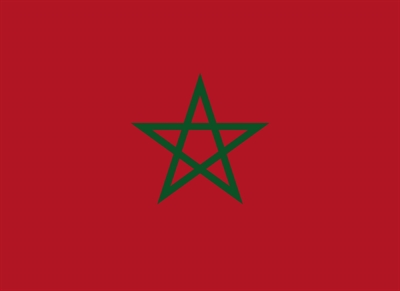Morocco - Universal Periodic Review - Women's Rights - September 2016
Country: Morocco
Type: Intl Mechanism Submission
Issues: Children's Rights, Economic, Social and Cultural Rights, Gender-Based Violence, International Advocacy, Women's Rights, Workers' Rights
Mechanism: UN Universal Periodic Review
Report Type: Stakeholder Report
The Advocates for Human Rights and Mobilising for Rights Associates submitted a joint stakeholder report to the UN Human Rights Council for the 2017 Universal Periodic Review of Morocco. The stakeholder report addresses violence against women In Morocco.
Violence against women and other forms of discrimination against women are widespread problems in Morocco. During its 2012 Universal Periodic Review, Morocco accepted the 26 recommendations urging it to address violence against women. Morocco has only partially implemented the recommendations.
Article 475, a provision in the Penal Code which had previously allowed a rapist to escape punishment by marrying the minor victim was repealed. However, the practice continues and no support services have been established for the victims.
Morocco has not implemented recommendations calling for the enactment of a specific violence against women law with criminal and civil provisions. Currently violence against women remains covered under outdated, generally applicable provisions in the 1962 Penal Code. Currently, victims of assault must suffer more than twenty days of disability to bring a criminal complaint, police cannot intervene immediately in domestic abuse unless there is an imminent threat of death, and spouses evicted from their marital homes are returned back into the abusive environment by the Public Prosecutor. Worryingly, a proposed reform would to the penal code would expand impunity for honor killing by making any family member the “head of household.” This would expand the category of people eligible for exoneration from assault. Women are also discouraged from reporting and pursuing claims of assault due to lengthy processes, a lack of protection measures, victim blaming and the high percentage of cases that are closed without action. Further, women are discouraged from reporting rape because they must prove non-consent and could be tried for sexual relations outside of marriage, which remains illegal in Morocco. The government has released contradictory statements about whether or not marital rape is a crime.
The government of Morocco has also failed to abolish polygamy and the approval rate of petitions for authorization to take another wife remains significant and is increasing. Efforts to limit unofficial marriages, which do not provide women any of the legal rights of marriage, have been made. However, the provision for recognizing a previously unofficial marriage is being used to register new polygamous marriages.
Men and women in Morocco still have unequal access to divorce under the 2004 Family Code. A husband can divorce his wife without a reason and without her agreement. Women do not have that ability. Women have gained the ability to file for divorce due to irreconcilable differences, but judges often hold them to the same standard as fault-based divorce.
Early marriage of girls remains a significant problem in Morocco. The number of petitions for authorization to marry minors and the approval rate are high and increasing.
Morocco rejected recommendations regarding sexual harassment. Currently, the only offence of sexual harassment is when a workplace superior harasses someone to obtain sexual favors.
The joint stakeholder report makes various recommendations, including that Morocco should pass a comprehensive Violence Against Women Law that contains both criminal and civil provisions, and amend the Family Code. A comprehensive Violence Against Women Law should, among other things, guarantee women the right to housing through civil protection orders and orders removing the violent offender from the home. In addition, women who file criminal complaints should receive protective measures during the complaint and investigation phase. Laws regarding the investigation of violence against women should also be reformed. Marital rape should be illegal and the requirement that non-consent must be proven for rape should be removed. Legal and financial support for shelters and housing for women victims of violence should be established. The requirement that victims of assault be incapacitated for more than twenty days should be removed. The family Code should be reformed to abolish all forms of polygamy, eliminate discrimination between men and women in access to divorce, ensure marriage registration procedures have not been used to circumvent polygamy restrictions, and abolish the marriage of minors.




